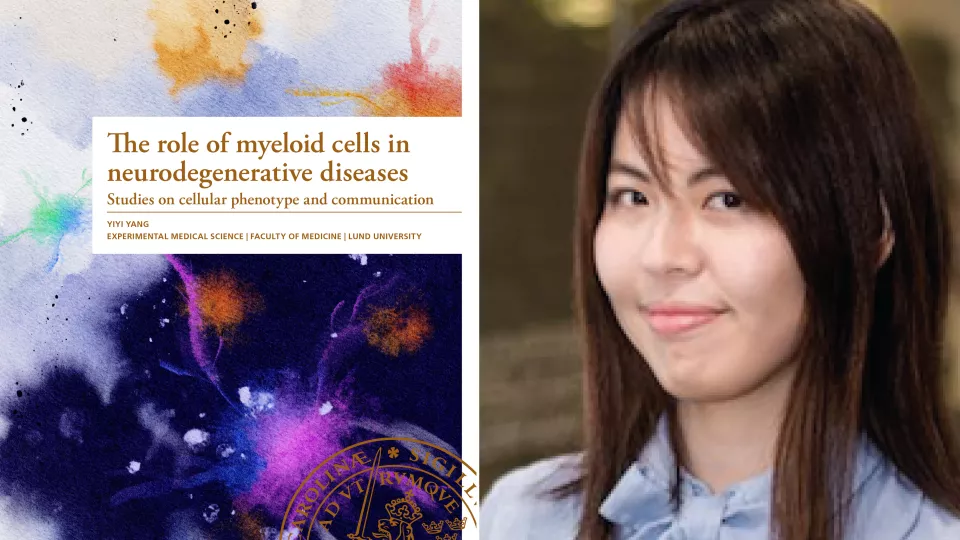Can you tell us about your Ph.D. research?
The focus of our Experimental Neuroinflammation Laboratory is to study how inflammation in the brain may contribute to the development of neurodegenerative disorders. My thesis project aimed at understanding the role of microglia in the pathological development of Alzheimer’s disease. For example, I have explored how inflammation outside of the brain may affect microglial reactions inside the central nervous system. It is important to understand if and how infections earlier in life can affect brain pathology later.
Furthermore, my thesis also examined the details in how microglia communicate with each other to spread inflammation. By analyzing the size and molecular content of small vesicles released from microglial cells, I gained insight into the crosstalk between inflammatory cells. Deepened knowledge regarding this may be used to develop new treatments to prevent potentially harmful inflammation at an early stage.
How did you end up at MultiPark?
When I was doing my master about stem cells and leukemia at A12, Tomas (currently Yiyi Yang’s main supervisor) advertised after a student to a master project about sorting cells with aucustophoresis. As I was experienced in using flow cytometry, I was happy to be a good match for that project. While the acustophresis was not really working out as we wished it would do, I also got involved in other experiments in Tomas’s lab, and eventually one of these projects evolved into my thesis project.
What have you enjoyed the most whilst researching at MultiPark?
I have gotten a lot of help from Anna Hammarberg at the flow cytometry platform. The infrastructure provided by MultiPark means a lot to young scientists since it is offering professional support in how to set up your experiments, and also an extra hand in running them during challenging periods. Moreover, I am also very grateful for the travel grants for young MultiPark researchers, which allowed me to attend SFN which facilitated building a professional network and spreading my research findings in the international arena. During non-pandemic times, I also find the lunch seminars organized by the graduate school very useful for finding new collaborators in our near environment.
What have been the most challenging aspects of your Ph.D.?
The supervision in our group is of a very independent nature, we have a lot of freedom to find our own paths for our research, meaning that our supervisor (Tomas) trusts us to be capable of learning ourselves. To support us in this process, we have regular “Share and Support”-meetings where we share the latest data and support each other in finding solutions to problems in our lab group. I think this is a very good way of achieving professional development, but it is also the most challenging.
And the most rewarding?
This is related to the previous question, even if having a high degree of freedom is sometimes challenging, it is also very rewarding when you gain knowledge by struggling on your own, reading, and asking peers. The final product of putting everything together, linking different pieces in the puzzle, is extremely rewarding.
What do you like to do when you are not researching?
Since I have a 3-year-old daughter, I spent most of my time with her and my husband, strolling in the Botanical garden and visiting different playgrounds in Lund. I also enjoy painting, which I took advantage of for making my thesis cover.
Do you have any advice for new Ph.D. students, something you wish that you had known during your Ph.D. education?
I recommend planning your Ph.D. courses at an early stage, to be able to spread them over a longer period and avoid taking all courses at the same time. This would have been more useful for me.
What are your future plans?
Well, after the defense, I need a week of vacation. Thereafter, my plan is to apply for funding to continue my research project in our group. When writing my thesis, I realized that my findings need to be confirmed with clinical data. So my vision is to get in contact with clinicians who can provide me with human samples from septic patients for example


